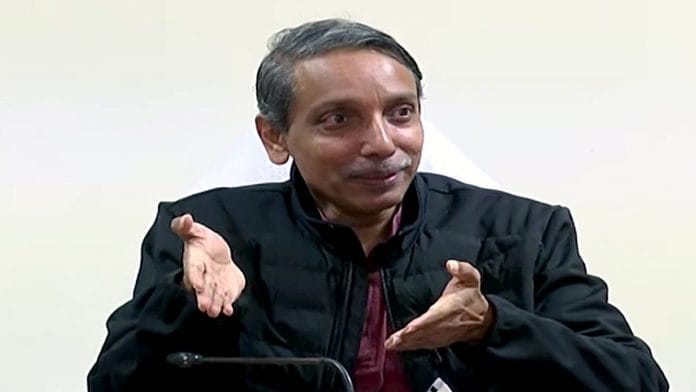New Delhi: Foreign universities entering India cannot offer any course that “jeopardises the national interest”. This is one of the clauses in the draft guidelines that the University Grants Commission (UGC) released Thursday for foreign universities establishing campuses in India.
The guidelines, however, are unclear about what this means specifically. Academics that ThePrint spoke to said that there should be a discussion on the subject as well as clarity on what constitutes “national interest” and what this means for foreign universities.
The draft guidelines state that foreign higher educational institutes “shall not offer any such programme of study which jeopardises the national interest of India or the standards of higher education in India”.
It also says that the operation of such foreign institutes “shall not be contrary to the sovereignty and integrity of India, the security of the State, friendly relations with foreign States, public order, decency, or morality”.
When asked about the clause, UGC chairman M. Jagadesh Kumar had said during a press briefing Thursday that “one should not read too much into it”, but academics believe that more information should be provided.
“This point should be explained to academics,” said Abha Dev Habib, a faculty member in Delhi University. “Suppose there is a course on caste tomorrow or something about Mughal rulers glorifying Akbar, will that be considered against national interest?”
Also read: Foreign universities can set up campus in India but UGC rules out online classes
‘Not unheard of, but needs discussion’
While some academics concede that a “national interest” clause is not unprecedented, there should be a discussion on what the UGC means by the term.
“The point of adding the national interest clause is not unheard of… The practice is followed even in developed nations, so there is nothing unusual about it,” said Srikanth Kondapalli, a professor at the School of International Studies, Jawaharlal Nehru University (JNU).
“This is done in order to ensure that there is no harm to the country’s reputation. There is a similar clause in the WTO [World Trade Organization] as well for the nations involved in international trade. G-7 countries also use such clauses in their policies in order to safeguard their culture,” he explained.
However, Kondapalli added a rider: “There must be a discussion on what it entails — and I am sure there will be a discussion. Foreign universities will want clarity on what this means for them. However, that being said, I don’t think the clause has been added to ban something, it’s more to protect.”
Speaking on the condition of anonymity, a professor associated with an international university said that universities interested in opening a campus in India should thoroughly examine all the clauses, including this one.
“Just because the draft does not give much clarity on the clause does not mean that the institutions should take it lightly. It could potentially have an effect on the kind of courses universities offer,” he told ThePrint.
Meanwhile, academics have pointed out other issues with the draft as well.
Abha Dev Habib, quoted earlier, questioned the whole idea of allowing foreign universities to set up campuses in India.
“The government should think, who are the students who will study in these universities? They are obviously bringing these for a handful of people who can afford expensive education,” she said. “Also, students go to foreign universities to settle in other countries and simply for the name of the university. If you bring the campus to India, how many will attend?” she asked.
The draft regulations on foreign universities have been uploaded on UGC’s official website and the commission has asked for feedback by January 18.
(Edited by Smriti Sinha)
Also read: Why top destinations Canada, Australia & NZ got fewer Indian students in last 3 yrs, UK saw rise






